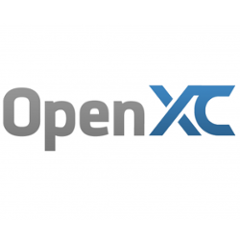OpenXC Android Library
This library is a part of the OpenXC project.
This Android library contains the tools required to read vehicle data from the vehicle's CAN bus through the OpenXC vehicle interface in any Android application.
Visit the OpenXC project page for installation instructions, usage details, and the source code documentation.
Building from Android Studio
Make sure you have Android SDK 22 installed (the default in newer versions of Android Studio might be later, e.g. 23 - you need to install SDK 22 to build OpenXC).
Open the library or enabler projects in Android Studio - done!
Tests
To run the unit tests suite:
$ ./gradlew test
To run the instrumentation tests (must have an attached Android device or emulator):
$ ./gradlew conectedCheck
Building from Command Line
The project requires Android Studio and is configured to build with Gradle.
Releasing the App and Library
- Update
CHANGELOG.mkd. - Update
enabler/src/main/play/en-US/whatsnew - Merge into
master, runfab releasewhich will tag and push to GitHub. - Travis CI will take care of the rest.
- Check out
next, bump the version inbuild.gradeto the next release.
The release of the Enabler to the Play store and the library to JCenter and the Maven Central Repository is managed automatically with Travis CI. The Travis build environment must be configured with these encrypted environment variables:
BINTRAY_USER- username at Bintray that is an owner of the openxc-android artifact.BINTRAY_API_KEY- API key for the user at Bintray.KEYSTORE_PASS- password to the release keystore in this repository.ALIAS_NAME- alias of the release key in the keystore.ALIAS_PASS- password for the release key.SERVICE_EMAIL- Google Play service account email, for API access to the Play store.BUGSNAG_TOKEN- Bugsnag API key, used to upload the Proguard mapping during the build and crash reporting in the release version of the app.
If you want to deploy from a local machine, you can either define those in your environment or in the local.properties file.
Crash Reporting
The pre-built version of the Enabler available through GitHub and the Google Play store uses Android Crash Reporting by Bugsnag. We're thankful to Bugsnag for offering their service to open source projects for free.
If you wish to link your own build of the app to a different Bugsnag account, you can set your own BUGSNAG_TOKEN in the build config (see above).
Contributing
Please see our Contribution Documents.
License
Copyright (c) 2011-2017 Ford Motor Company Licensed under the BSD license.
